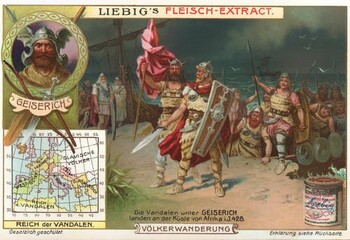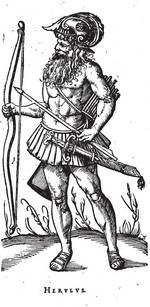Migratio gentium
The “Germanic Völkerwanderung” in Early Modern Scholarly Thought
Origins and Developments of the Master Narrative of German Nationalism, 1500–1830

In the patriotic German historiography of the 19th and 20th centuries, the motif of the “Germanic Völkerwanderung” has played an eminent role. According to this master narrative of German nationalism, allegedly Germanic tribes like the Goths, the Vandals, the Langobards and numerous others had roamed Europe in a series of far-reaching campaigns of conquest and colonization between the late fourth and the mid-sixth century AD that brought the Roman Empire to its knees. Their bravery and martial prowess were interpreted as manifestations of primordial, unchanging Germanic virtues which modern Germans shared with their barbarian ancestors. During the last decades, historical research on the transformation processes of late antiquity and the early Middle Ages has thoroughly refuted such appropriations of the past. The deconstruction of the Völkerwanderung, however, makes it even more important to examine the emergence of this highly influential historical narrative.

The origins of the Völkerwanderung concept can be traced back to the 16th century: In his 1557 tract De gentium aliquot migrationibus (“On the Migrations of Certain Tribes”), Viennese humanist Wolfgang Lazius coined the term migratio gentium. Reacting to the static image of Germanic territoriality that had been shaped by earlier humanist readings of Tacitus – the Germani being defined by being indigenous and rooted in their native land –, Lazius tried to draw the attention of the scholarly community to the phenomenon of barbarian migrations. In the following decades, this topic was addressed by numerous writings and orations in the European res publica litterarum. The 17th and in particular the 18th century saw an increasingly complex refinement of the Völkerwanderung narrative that reached its peak in the writings of scholars such as Johann Jacob Mascou and Johann Ehrenfried Zschackwitz, whose aptitude for source criticism does not fail to impress modern observers.
Single Research Project
Stefan Donecker
